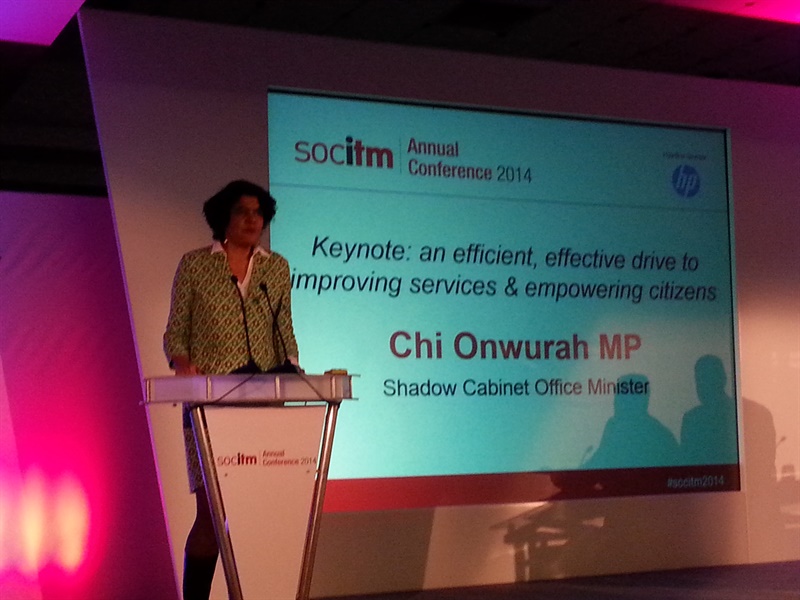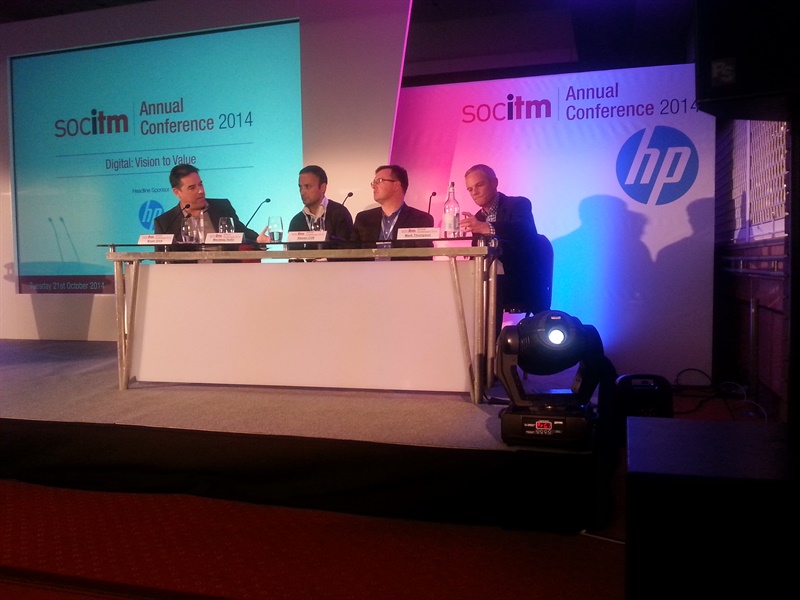22.10.14
Collaboration will drive digital in public services – Socitm Conference
The next government could help deliver a culture of ‘digital by design, open by default’ for public services – but not through a ‘one-size-fits-all’ method like the Government Digital Service (GDS), according to Socitm president Nick Roberts.
Speaking to about 350 delegates at the Society’s annual conference in Manchester yesterday, attended by PSE’s David Stevenson, Roberts said: “But there is an opportunity for some resources to be built to share expertise, to deliver some components of shared platforms and assets that can be used by public services in a very meaningful way to be able to catapult through and move through to a digital design open by default landscape.”
Roberts added that the whole point of local public services is local accountability and local determination of priorities in services. “So a one-size-fits-all approach cannot be taken for public services”.
During his opening speech at the two-day conference, held at Old Trafford stadium, he also launched a policy briefing on how local digital public services can best be delivered.
The briefing is explicitly addressed to politicians and senior policy and decision-makers, and explains that local public service organisations looking to embrace digital need to adopt three core principles:
- Innovate to empower citizens and communities
- Redesign services to simplify, standardise and automate
- Collaborate to share and re-use resources and assets
Labour shadow cabinet office minister Chi Onwurah MP also spoke at the event calling for local authorities to “come together” and share advice on best practice, applications and the design and development of platforms, while being dedicated to meeting the local needs of citizens.
If Labour wins power next year, she said: “The first thing I would be asking for is people’s partnership to work together to achieve the really difficult challenges of transforming and transitioning the system from where we are, given the existing and multiple legacies, to where we need to be – shared platforms and open architectures co-produced with citizen services.
“My experience is that technology, whatever the question is, is not the solution on its own, so the first thing we need is to work together.”

Later in the afternoon, Tony Singleton, director of digital commercial programme at the Cabinet Office’s Government Digital Services (GDS), discussed the growth of GDS and how it is bringing about change in how government and the wider public sector thinks about, and buys, digital and technology.
He added that in terms of G-Cloud sales, the latest figures are now £314m, averaging £25m per month, with the majority of contracts going to SMEs. However, central government is still the main procurer with an 80% market share.
But Singleton said: “It is not about central government versus local government. It’s about making the best of what we’ve got, what makes sense commercially, and whether there should be a common commissioning platform that provides for everyone’s needs.
“For me it is about sharing experiences and ways of working to deliver the best value for money.”
In a later panel session, Mandeep Hothi, the senior programme manager – Innovation Lab at Nesta, added that technology has the power to change the relationship between citizens and the state by giving them more influence and control over the services they use.
But we are at the beginning of what is likely to be a 30-year journey in delivering this empowerment. He did note that in order to deliver this, “we have to get the basics right, including digital services”.

(Above image L to R: Bryan Glick, editor Computer Weekly; Mandeep Hothi, the senior programme manager – Innovation Lab at Nesta; Steven Clift, White House Champion of Change for Open Government and executive director at e-Democracy.org; and Mark Thompson, senior lecturer in information systems at Cambridge Judge Business School and ICT advisor to the Cabinet Office)
Mark Thompson, senior lecturer in information systems at Cambridge Judge Business School and ICT advisor to the Cabinet Office, said in order to deliver effective change local government needs to start “re-thinking its business models”.
He asked the audience: “Does anyone think they can go digital without a fight within their organisation? Of course not, this is because it effectively disintermediates a lot of the way you [local authorities] run your businesses.
“In order to deliver this I think it is about digital leadership as well as management. We need to start re-thinking our business models.”
Full coverage of the conference will be in the Dec/Jan issue of PSE.
Tell us what you think – have your say below or email [email protected]